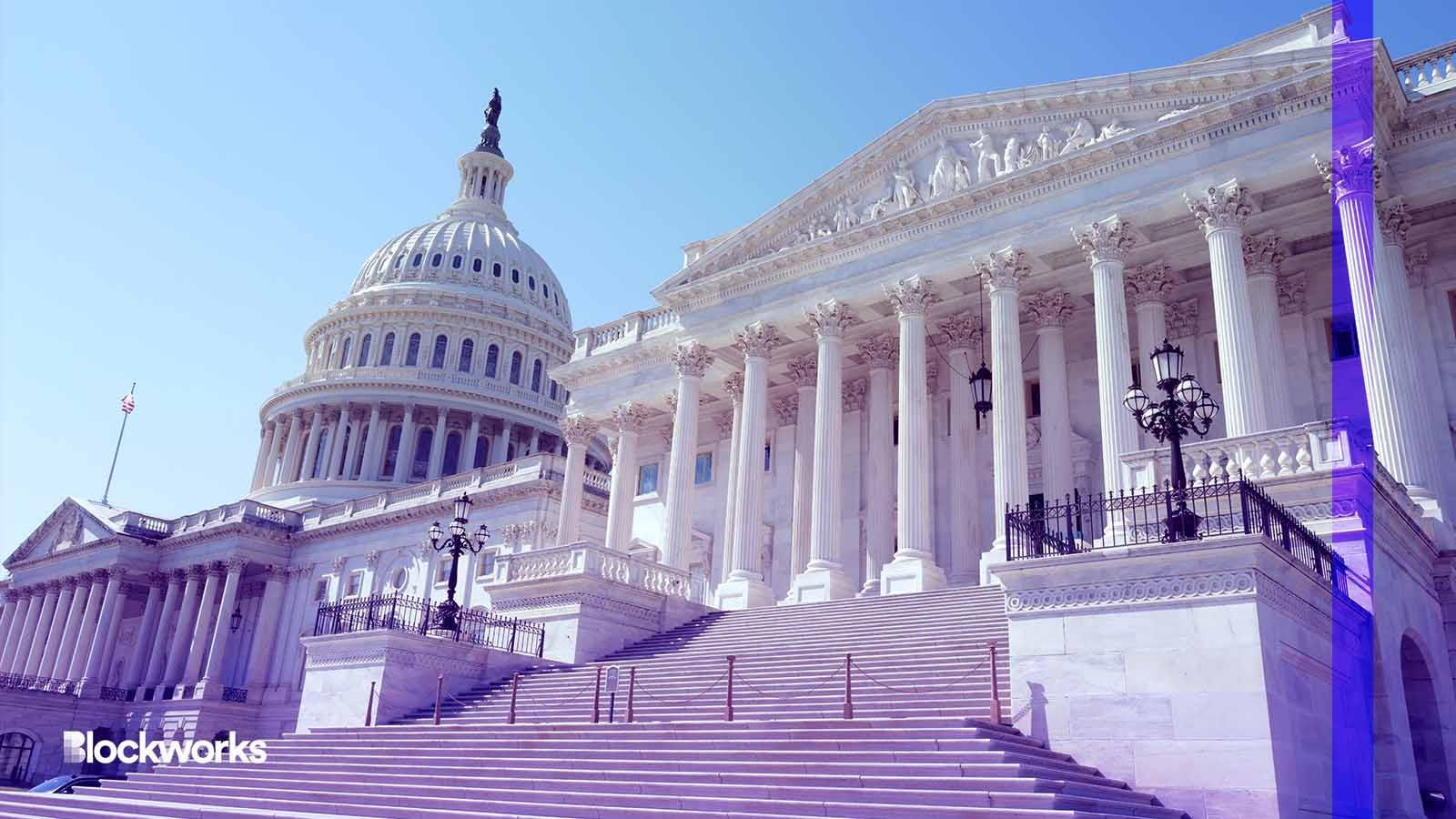House Hearing Tackles Non-financial Use Cases for Crypto
Lawmakers set an optimistic tone on Wednesday, discussing room for crypto innovation in the supply chain, healthcare and national security

Phil Pasquini/Shutterstock modified by Blockworks
Just after the SEC announced back-to-back lawsuits against major crypto exchanges Binance and Coinbase, crypto industry members and legal experts appeared before a majority Republican committee to engage in much more amicable dialogue.
The House Energy and Commerce Committee Subcommittee on Innovation, Data and Commerce gathered Wednesday to discuss blockchain technology and the future of Web3. Lawmakers focused on how to keep America at the forefront of crypto innovation, and use cases for different blockchain and distributed ledger technologies.
US lawmakers are making a mistake by allowing the conversation around crypto to be dominated by the security versus commodity debate, Rep. Rick Allen, R-Ga., said.
Blockchain technology could advance contract tracing efforts for Covid-19 and other diseases and improve security for data relating to national security, Hasshi Sudler, professor and CEO of Villanova University College’s engineering and internet think tank, said in his prepared testimony.
Smart contracts could help improve regulatory compliance and supply chain management, Carla Reyes, associate law professor at SMU Dedman School of Law, added.
“Legislative and regulatory discussion related to blockchain technology generally centers on financial use cases,” Reyes said. “This hyper-focus on one segment of blockchain technology-related use cases…heightens the risk of discouraging useful innovation in areas unrelated to finance and financial services.”
As witnesses and lawmakers speculated about potentially revolutionary blockchain innovations, the lack of regulatory clarity in the US continued to act as a dark cloud.
When asked how the US government could partner with the industry to advance modernization, witnesses mentioned that the current regulatory environment is a major barrier.
“How the government approaches jurisdiction over blockchain entities” needs to be sorted out, Ross Schulman, senior decentralization fellow at the Electronic Frontier Foundation, said.
Top talent is not going to stay in or come to the US unless there is a major policy overhaul, Ryan Wyatt, president of Polygon Labs, added.
The hearing comes on the heels of a separate House hearing Tuesday, where the Agriculture Committee grilled exchange executives and former regulators on compliance and consumer protection.
Wednesday’s energy and commerce hearing marks the first time lawmakers have hosted a crypto hearing that addressed non-financial use cases.
“While cryptocurrencies represent one application of this technology, the underlying technology merits further attention of the other new opportunities and applications it facilitates,” Committee Republicans said in a memo ahead of the hearing.
Capitol Hill has a busy crypto agenda this summer. The House Financial Services Committee will meet again on June 13 to discuss regulatory clarity and many Congress members on both sides of the aisle plot to introduce and advance legislation in the coming months.
Get the news in your inbox. Explore Blockworks newsletters:
- The Breakdown: Decoding crypto and the markets. Daily.
- 0xResearch: Alpha in your inbox. Think like an analyst.






